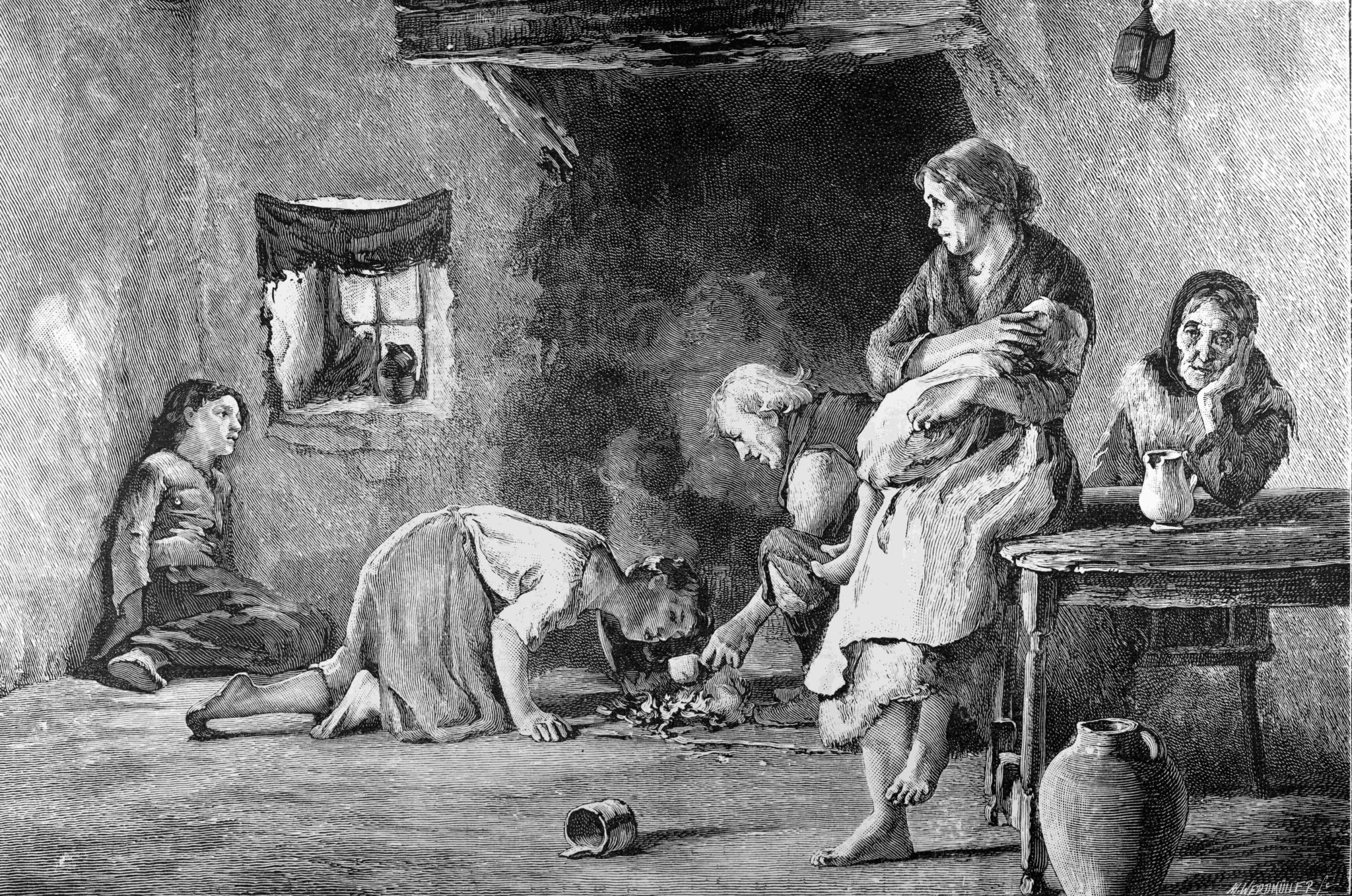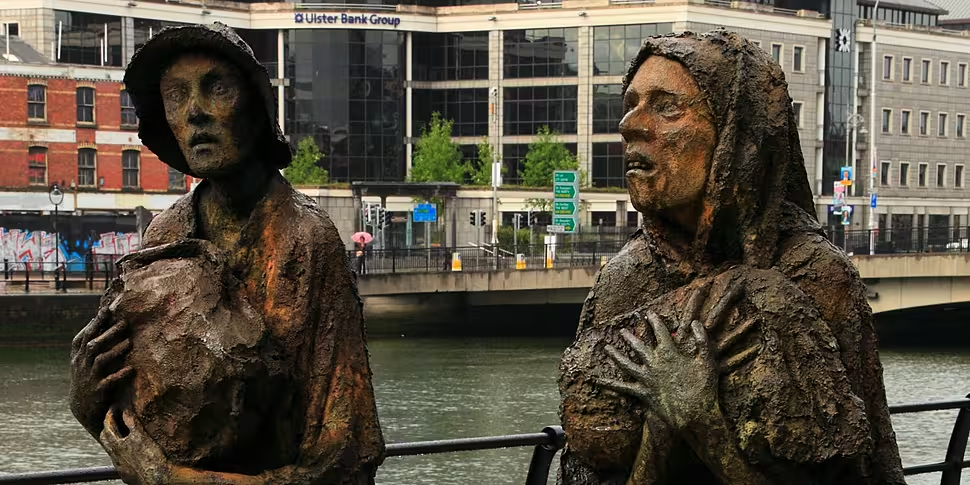Compensation for the Famine “doesn’t make sense”, a Professor of History has said.
Earlier this year, BBC journalist Laura Trevelyan left her job to campaign full-time on the issue of compensation for historic wrongs and her family has donated more than £100,000 to charity projects in Grenada - where they owned slaves in the 19th century.
Ms Trevelyan has now said her family would consider paying compensation to Ireland because of the connection of her ancestor Charles Trevelyan to the country.
During the Famine, Trevelyan was a British civil servant working on Famine relief and his work is referred to in the Fields of Athenry.
History Professor Liam Kennedy of Queen’s University said the song was a “wonderful tune” but is “probably not the most helpful text for understanding the Great Famine.”
“I suppose he [Trevelyan] would make the point - and this is a point that is often forgotten - many lives were indeed saved by Famine relief measures,” Professor Kennedy told The Hard Shoulder.
“Tragedy is that those Famine relief measures weren’t pursued more vigorously.”
Professor Kennedy said Trevelyan was not the person to blame for the catastrophe of the Famine years.
“We also need to remember that he was a civil servant,” he said.
“Power - particularly in relation to how public money was spent on Famine relief - that power and responsibility lay with the British Government and particularly with Charles Wood, the Chancellor of the Exchequer.”
 Interior Of A Peasant Hut (Credit Image: © John Short/Design Pics via ZUMA Wire)
Interior Of A Peasant Hut (Credit Image: © John Short/Design Pics via ZUMA Wire)Between 1845 and 1852, one million people in Ireland died and a further one million fled the country; however, Professor Kennedy believes the death toll could have been even worse.
“The British Government did spend £10 million on Famine relief, it did employ three quarters of a million people on public work schemes,” he said.
“[They were] feeding three million at soup kitchens in July 1847 - so, I think we need a degree of perspective on all this.
“There were certainly major problems that may be made of the British Government and, indeed, rightly so - particularly the second two years of the Great Famine.
“There were also substantial achievements given the scale of the catastrophe caused by an ecological disaster - the destruction of the staple food of the people, the potato.”
In 2021, the Jamaican Government announced it would ask Britain for compensation for slavery - something Professor Kennedy believes the Irish Government would have difficulty pursuing.
“Who on earth would you compensate six or seven generations on?” he said.
“Would you compensate the large farmers - many of whom benefited from the Great Famine, who along with landlords evicted their cottiers and labourers?
“I’m not sure, I just don’t think it makes sense to think in compensation terms.”
Main image: The Famine Memorial is seen on Custom House Quay in Dublin, Ireland in May 2014. Picture by: Tibor Bognar / Alamy Stock Photo









